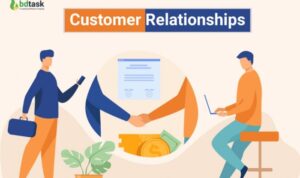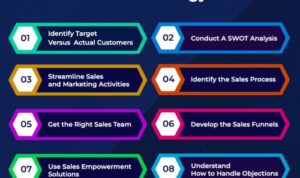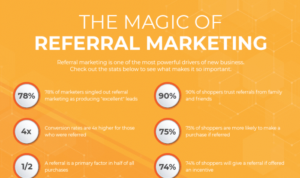Understanding B2B and B2C Sales dives into the world of business transactions, shedding light on the differences, challenges, and strategies that define these sales processes. Get ready to explore the intricate dance of commerce in a whole new way.
Get ready to delve into the specifics of B2B and B2C sales, from target audiences to sales channels, and everything in between.
B2B Sales vs. B2C Sales
In the world of sales, there are two main categories to consider: Business-to-Business (B2B) sales and Business-to-Consumer (B2C) sales. While both involve selling products or services, the approach and target audiences differ significantly between the two.
Key Differences
- In B2B sales, the transactions occur between businesses, where one business sells products or services to another business. On the other hand, B2C sales involve transactions between a business and individual consumers.
- B2B sales typically have longer sales cycles due to the complexity of the products or services being sold, as well as the decision-making process involving multiple stakeholders within the buying organization.
- Relationships play a crucial role in B2B sales, with a focus on building trust, providing value, and understanding the specific needs of the business clients. In contrast, B2C sales are more transactional and often driven by emotions, trends, and impulse buying.
Unique Challenges in B2B Sales
- One of the main challenges in B2B sales is the need to navigate complex organizational structures and decision-making processes within the target businesses. This requires building relationships with multiple stakeholders and understanding their individual needs and priorities.
- B2B sales often involve selling high-ticket items or services, which require a more consultative approach and a deep understanding of the industry and market dynamics. This can make it challenging to close deals and requires a longer-term investment in the sales process.
Target Audiences
- In B2B sales, the target audience consists of businesses, ranging from small startups to large corporations, across various industries. The focus is on addressing the specific needs and pain points of these businesses to provide tailored solutions that deliver value and drive growth.
- On the other hand, in B2C sales, the target audience comprises individual consumers who make purchasing decisions based on personal preferences, emotions, and convenience. The emphasis is on creating engaging marketing campaigns, delivering exceptional customer experiences, and building brand loyalty.
Understanding B2B Sales

In the world of business, B2B sales refer to transactions between businesses rather than between a business and individual consumers. Understanding the sales process in B2B transactions is crucial for success in this arena.
Sales Process in B2B Transactions
- Identification of Needs: The process begins with identifying the specific needs of the business.
- Research and Evaluation: Extensive research and evaluation of potential solutions or products that can address the identified needs.
- Proposal and Presentation: Creating a tailored proposal and presenting it to the business decision-makers.
- Negotiation: Negotiating terms and conditions to reach a mutually beneficial agreement.
- Closing the Deal: Finalizing the deal and ensuring all terms are met.
Effective B2B Sales Strategies
- Build Trust: Establishing trust through transparency and credibility is essential in B2B sales.
- Customization: Tailoring solutions to meet the specific needs of each business can significantly increase success rates.
- Provide Value: Demonstrating the value of the product or service in solving business challenges is key.
- Long-term Relationships: Focusing on building long-term relationships rather than one-time transactions can lead to repeat business.
Role of Relationship-Building in B2B Sales
Relationship-building plays a crucial role in B2B sales as businesses often prefer to work with partners they trust and have a strong relationship with. This trust allows for open communication, collaboration, and a deeper understanding of each other’s needs and goals, ultimately leading to successful and sustainable business partnerships.
Understanding B2C Sales

In B2C sales, the focus is on selling products or services directly to individual consumers rather than to businesses. It involves understanding consumer behavior, utilizing key marketing tactics, and emphasizing branding to attract and retain customers.
Typical Consumer Behavior in B2C Sales
Consumer behavior in B2C sales is driven by personal preferences, emotions, and needs. Consumers tend to make purchasing decisions based on factors such as price, product quality, convenience, and brand reputation. They are often influenced by advertising, social media, and word-of-mouth recommendations from friends and family.
- Consumers are more likely to make impulse purchases in B2C sales compared to B2B sales.
- Personalization and customer experience play a significant role in influencing consumer behavior.
- Reviews and ratings have a major impact on consumer purchasing decisions in B2C sales.
Key Marketing Tactics Used in B2C Sales
Marketing tactics in B2C sales focus on reaching a wide audience, creating brand awareness, and driving customer engagement. Some key tactics include:
- Social media marketing: Utilizing platforms like Instagram, Facebook, and Twitter to connect with consumers and promote products.
- Email marketing: Sending targeted emails to consumers with personalized offers and product recommendations.
- Content marketing: Creating valuable and engaging content to attract and retain customers.
Importance of Branding in B2C Sales
Branding is crucial in B2C sales as it helps differentiate products or services from competitors, build trust with consumers, and create a strong emotional connection. A strong brand identity can lead to customer loyalty, repeat purchases, and positive word-of-mouth referrals.
“Your brand is what other people say about you when you’re not in the room.” – Jeff Bezos
Sales Channels in B2B and B2C: Understanding B2B And B2C Sales
In both B2B and B2C sales, the choice of sales channels plays a crucial role in reaching customers and driving revenue. Let’s explore the different sales channels used in these two types of sales and the impact of e-commerce on their strategies.
B2B Sales Channels, Understanding B2B and B2C Sales
In B2B sales, the sales channels are often more focused on building relationships and providing personalized solutions to businesses. Common sales channels in B2B include:
- Direct Sales: This involves sales representatives directly engaging with potential clients, often through meetings and presentations.
- Distributors and Resellers: Businesses may use distributors or resellers to reach a wider market and leverage their existing networks.
- Online Marketplaces: B2B companies can also utilize online marketplaces specific to their industry to connect with potential buyers.
B2C Sales Channels
On the other hand, B2C sales channels focus more on convenience and accessibility for individual consumers. Common sales channels in B2C include:
- Retail Stores: Traditional brick-and-mortar retail stores remain a popular sales channel for B2C companies to showcase and sell their products.
- E-commerce Websites: With the rise of online shopping, B2C companies heavily rely on e-commerce websites to reach a wider audience and facilitate transactions.
- Social Media Platforms: B2C companies use social media platforms to engage with customers, promote products, and drive sales through targeted advertising.
Role of E-commerce in B2B and B2C Sales
E-commerce has revolutionized both B2B and B2C sales by providing a convenient and efficient way to conduct transactions. In B2B sales, e-commerce platforms enable businesses to streamline ordering processes, manage accounts, and track inventory. Similarly, in B2C sales, e-commerce websites offer customers the flexibility to shop anytime, anywhere, and access a wide range of products with ease.
Successful Sales Channel Strategies
Successful sales channel strategies in B2B and B2C environments often involve a combination of traditional and digital channels tailored to the target audience. For example:
- Amazon Business: Amazon’s B2B platform has become a successful sales channel for businesses to reach a vast customer base and streamline procurement processes.
- Warby Parker: The B2C eyewear company Warby Parker has effectively utilized e-commerce and brick-and-mortar stores to provide customers with a seamless shopping experience.





